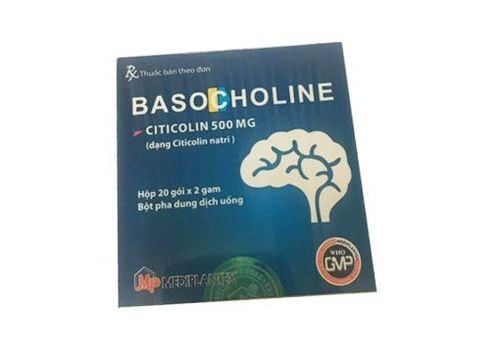This is an automatically translated article.
Traumatic brain injury is a surgical disease that leaves many sequelae of traumatic brain injury for patients after recovery. The most commonly used method to treat traumatic brain injury is surgery. However, in order to contribute to the complete recovery of the patient as well as to reintegrate into society, the post-operative care of traumatic brain injury patients also plays a very important role.1. Patients with traumatic brain injury
Diseases related to the brain such as brain tumor, traumatic brain injury or cerebrovascular malformation need to be operated on in time to limit the sequelae left by the disease on the patient. However, the care of patients with traumatic brain injury including care before, during and after surgery is extremely important and needs more attention to bring the best treatment effect to the patient. For cranial surgery in traumatic brain injury, it is usually an emergency surgery, so the time for patient preparation as well as preoperative care is very short. In some other cases of elective surgery, a pre-operative and postoperative care plan is indispensable to monitor the patient's health and response to treatment.2. Care after craniocerebral surgery
After undergoing brain surgery to treat traumatic brain injury, the patient needs a special care regimen to speed up the recovery process as follows:Place the patient in an elevated head position at an angle 30° above the bed, if the patient is comatose, the family member or medical staff help the patient change the lying position about every 2 hours Care of the incision Monitor the drainage of the incision, usually in clinical There will be indications to withdraw after 48 hours, but specifically, depending on the type of drainage, there will be different care: If it is a subcutaneous drainage, it is necessary to drain the drainage regularly, keep it sterile and change the dressing often. often. If drainage is subdural and drains from the ventricles, keep aseptic, do not aspirate the drainage. Patients can wash their hair after surgery for about 24-48 hours. Prevent pressure ulcers for patients by changing positions frequently, strengthening measures of nutrition, physical therapy, and topical medications at points prone to pressure. Cut the thread after about 7 days.

Cần thay đổi tư thế thường xuyên cho bệnh nhân sau phẫu thuật để tránh loét tì đè
Traumatic brain injury is a dangerous disease. Therefore, first aid, treatment and resuscitation need to be carried out by qualified medical facilities with a team of trained doctors. The treatment of traumatic brain injury requires comprehensive, patient follow-up and serious technical implementation to have the opportunity to save the patient's life and minimize the sequelae of traumatic brain injury. after that.
Vinmec International General Hospital is one of the hospitals that not only ensures professional quality with a team of leading medical doctors, modern equipment and technology, but also stands out for its examination and consultation services. comprehensive and professional medical consultation and treatment; civilized, polite, safe and sterile medical examination and treatment space.
Please dial HOTLINE for more information or register for an appointment HERE. Download MyVinmec app to make appointments faster and to manage your bookings easily.













